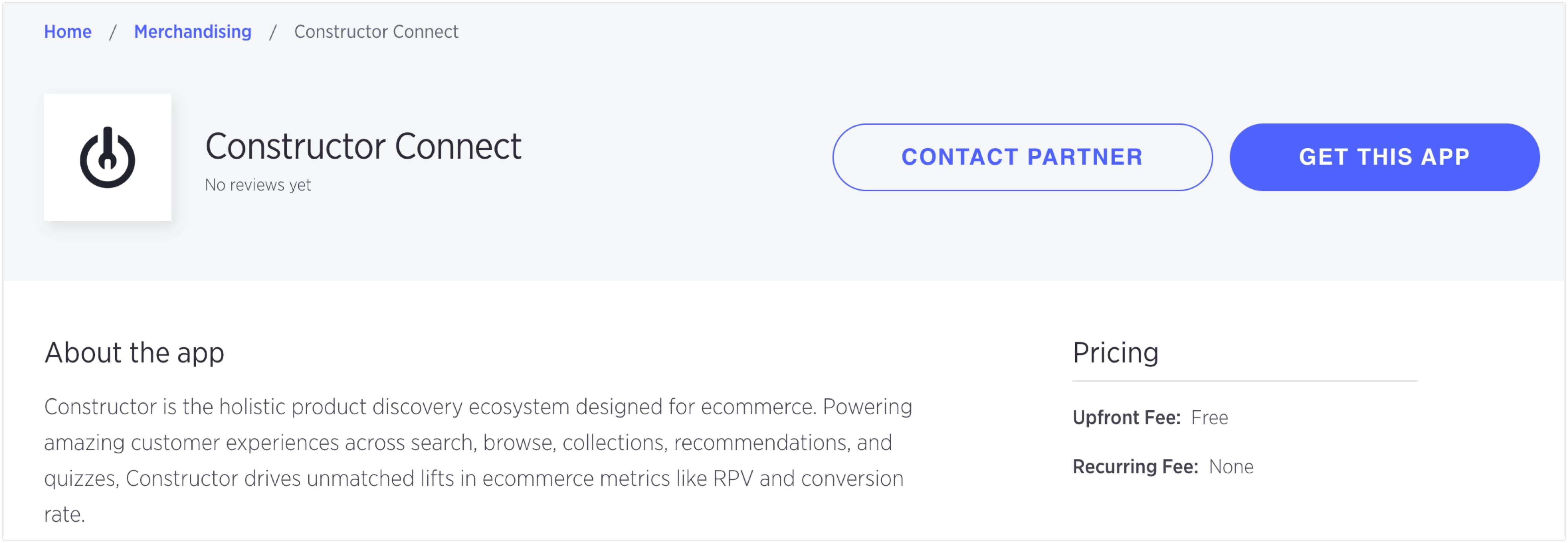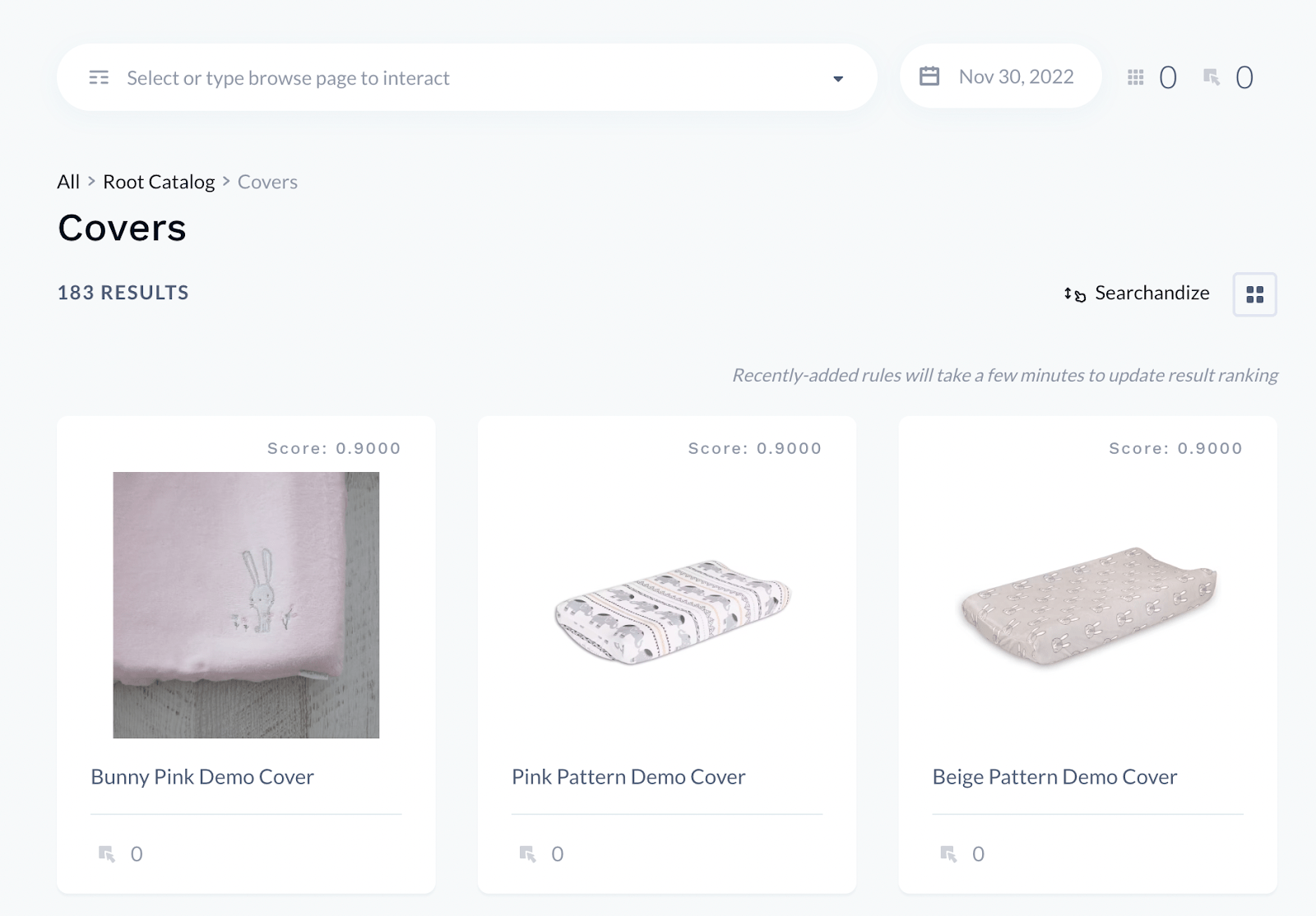BigCommerce connector
The BigCommerce Connector allows you to connect BigCommerce to Constructor. This connection enables you to quickly synchronize your catalog data with Constructor, including your products, variations, categories, and custom product attributes.
Why use it?
Constructor Connect accelerates the path to value for joint customers through a turnkey product catalog integration. In just a few clicks, connect your BigCommerce catalog for ingestion and regular updates to Constructor (categories, products, and variations included).
Supported versions
Both BigCommerce and Constructor are version-less SaaS solutions. You only need active accounts to use the BigCommerce Connector.
NoteVariant Metafields are only supported when exposed to the Storefront API. The connector requires either
write_and_sf_accessorread_and_sf_accessto be able to use them.
How it works
The connector uses the BigCommerce API to fetch the catalog data from your BigCommerce instance. It provides a base transformation layer to import data into Constructor to sync and update your catalog.
The connector is read-only to ensure that BigCommerce remains the source of truth for your catalog data.
Installation
Step 1: Install the Constructor app
In the BigCommerce Marketplace, install the Constructor Connect app.

Note: You'll need to accept the terms and give permissions to the API scopes the app uses.
You're all set 🎉
That's it. You have successfully installed the Constructor app in your BigCommerce account.
We'll handle the remainder of the setup from our side and we will contact you in case we need any information. After that's done, you will be notified and you should also start seeing your catalog data in your Constructor account:

Note: The image preceding is just an example of what you should see in your Constructor account. Use our visual dashboard to validate your product data within the Constructor platform.
Data mapping
You can refer to the BigCommerce API Docs and Constructor API Docs for more information about the data types.
Categories
BigCommerce Categories map to Constructor groups.
| Constructor Entity | Constructor Field | BigCommerce Field |
|---|---|---|
groups | id | category.id |
groups | name | category.name |
groups | parent_id | category.parent_id or null |
Note: All category hierarchy is preserved.
Products
Here's how we map products and variations.
Product information
The base data from a BigCommerce Product will always be transformed to an item at Constructor, defining the base product:
| Constructor Entity | Constructor Field | BigCommerce Field |
|---|---|---|
items | id | product.sku or product.id |
items | active | product.is_visible |
items | item_name | product.name |
items | image_url | product.primary_image.url_standard |
items | url | custom_url.url |
items | description | product.description |
items | group_ids | mapped from product.categories |
items | metadata | see metadata |
items | keywords | mapped from product.search_keywords |
Then, every single Product Variant will be transformed to a Constructor variation:
| Constructor Entity | Constructor Field | BigCommerce Field |
|---|---|---|
variations | active | true |
variations | item_name | variant.name |
variations | item_id | product.sku or product.id |
variations | variation_id | variant.sku or variant.id |
variations | image_url | variant.image_url |
variations | url | custom_url.url |
variations | metadata | see metadata |
Product metadata
The connector does not map any specific attributes by default. Specific attributes are those which will vary from integration to integration, like color, price, availability or others.
Instead, we provide a powerful template ecosystem via the Connect CLI that allows you to interface with the connector and map the data to ingest those attributes as metadata in any way you need.
Updated 5 months ago